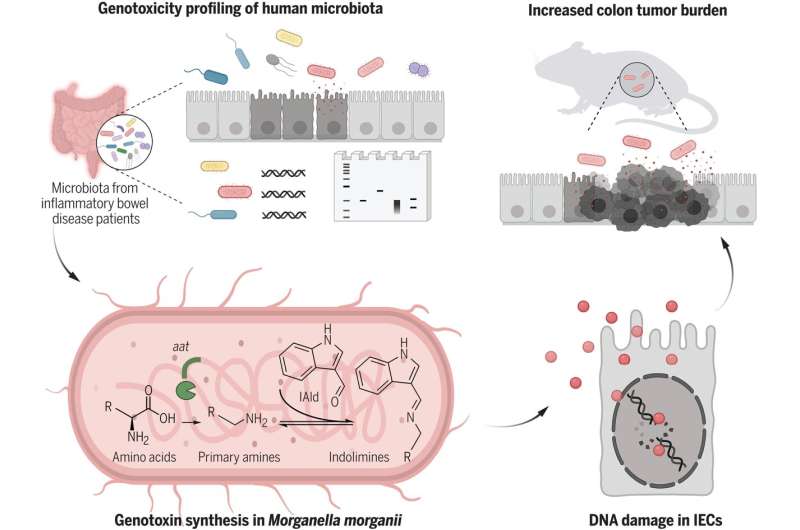
A team of researchers at Yale University has identified a group of genotoxins produced by a gut microbe that can damage DNA, leading to an increased risk of developing colorectal cancer. In their paper published in the journal Science, the group describes the screening process they developed. Jens Puschhof and Cynthia Sears, with the German Cancer Research Center and the Johns Hopkins University School of Medicine, respectively, have published a Perspectives piece in the same journal issue outlining the work done by the team on this effort.
Prior research has shown that some bacteria that exist in the human gut can produce chemicals that contribute to the likelihood of their host developing colorectal cancers. Escherichia coli, for example, has been found to produce a substance called colibactin that has been linked to an increased chance of developing cancer. Such substances are known generically as genotoxins—they cause problems by damaging DNA. In this new effort, the researchers noted that very few genotoxins have been identified and sought to find more.
The work involved first collecting stool samples from people with irritable bowel syndrome, which has also been associated with an increased risk of colorectal cancers. Each of the samples was then screened using a process the team developed to determine whether substances produced by a given type of bacteria cause DNA damage in the cells they infect.
They discovered an entire family of metabolites they named indolimines that are produced by a bacteria known as Morganella morganii. Prior research had found an association between M. morganii and an increased risk of colorectal cancer, but until now, their genotoxins had not been identified. The researchers also looked for a more direct link—they injected M. morganii into the bowels of healthy mice and found that doing so increased their rate of tumor growth.
Source: Read Full Article



